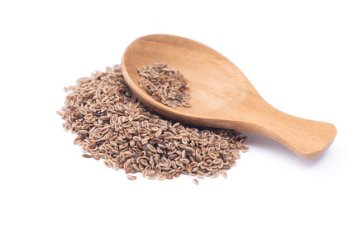What is Psyllium and How Can It Improve Your Health?
Psyllium is a natural fiber extracted from the seeds of the Plantago ovata plant, widely known for its benefits to digestive health and overall well-being. Rich in soluble fiber, psyllium forms a gel-like substance when mixed with water, playing a vital role in regulating bowel movements.
In this article, you’ll learn how psyllium works, its key features, benefits, and how to incorporate it into your diet to boost your health.
How Does Psyllium Work?
When consumed, psyllium absorbs water, forming a gel that helps soften stools and make them easier to pass. This is particularly beneficial for people suffering from constipation or diarrhea. Additionally, its action in the digestive tract helps regulate cholesterol and blood sugar levels due to its ability to slow digestion and carbohydrate absorption.
As a prebiotic fiber, psyllium also nourishes beneficial gut bacteria, promoting a healthy microbiome essential for immune and metabolic health.
Key Features of Psyllium
- High Soluble Fiber Content:
Psyllium is one of the richest sources of soluble fiber, essential for digestive and cardiovascular health. - Versatility:
It can be added to beverages, soups, bread, and cake recipes or consumed as a supplement in capsule or powder form. - Low Calorie:
Despite its high nutritional value, psyllium is low in calories, making it ideal for weight management. - Natural Product:
Psyllium is a natural way to improve fiber intake without relying on processed products.
Effects of Psyllium
- Bowel Regulation: Helps alleviate both constipation and diarrhea.
- Cholesterol Reduction: Assists in lowering LDL (bad cholesterol) levels in the blood.
- Blood Sugar Control: Helps stabilize blood sugar levels, making it a valuable ally for people with diabetes.
- Heart Health: Contributes to reduced blood pressure and overall cardiovascular health.
- Increased Satiety: As a fiber, it promotes a feeling of fullness, aiding in appetite control.
Benefits of Psyllium
- Improved Digestion: Promotes regular bowel movements, relieving discomfort such as bloating and gas.
- Weight Loss Aid: The feeling of fullness it provides can reduce calorie intake.
- Heart Health Support: Helps regulate cholesterol levels, lowering the risk of heart disease.
- Diabetes Management: Its role in slowing carbohydrate absorption prevents blood sugar spikes.
- Anti-inflammatory Properties: Aids in reducing intestinal inflammation.
When Does Psyllium Start to Work?
The effects of psyllium can vary depending on your goal:
- Bowel regulation: Usually within 12 to 72 hours of regular use.
- Cholesterol control: It may take weeks of consistent use to show noticeable results.
- Weight management: The feeling of fullness occurs immediately after consumption.
Foods Containing Psyllium
While psyllium is not naturally found in whole foods, it is widely used as an ingredient in various products, such as:
- Enriched whole-grain cereals;
- Protein and granola bars;
- Whole-grain bread mixes;
- Dietary supplements in powder or capsule form.
If you prefer a simpler approach, psyllium can be purchased in its pure form and added to recipes like smoothies, yogurt, and soups.
Conclusion
Psyllium is a powerful ally for those looking to improve digestive health, lower cholesterol, stabilize blood sugar levels, and even lose weight. With scientifically proven benefits, it is an excellent addition to your dietary routine.
Ensure you consume psyllium with plenty of water to avoid digestive discomfort. Before starting regular use, especially if you have preexisting health conditions, consult a healthcare professional for personalized guidance.
Incorporating psyllium into your diet can be a small yet significant step toward a healthier life!
If you liked this content, share it on your social networks or with friends who are also looking for health and wellness tips. Explore more tips on our website! Click here.





Leave a Reply